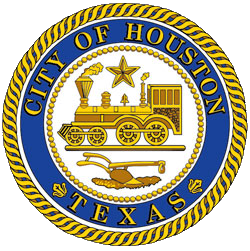CLARIFICATION: A total of 30 households participated in the survey. Of those, 43% (13 families) self-reported a cancer diagnosis.
—————-
HOUSTON – Forty-three percent of 30 Fifth Ward families living in homes located over a creosote contamination plume self-report at least one cancer diagnosis, a health survey released Tuesday indicates.
The percentage is relatively high for the neighborhood since the average cancer diagnosis for Houston is 6.1 percent. Most received a cancer diagnosis after 2003.
Lung cancer was one of the most common types of cancer among respondents or their family members, the survey also points out. It is one of the cancers associated with the chemicals of concern identified by the Texas Commission on Environmental Quality in the Union Pacific Railroad groundwater contamination.
“It is disconcerting that people with a cancer diagnosis in this neighborhood may have been exposed to creosote for four decades,” said Loren Hopkins, chief environmental science officer at the Houston Health Department.
More than 40 health department employees and volunteers with the Fifth Ward community group IMPACT conducted the door-to-door survey of 110 properties in early January to assess and better understand the residents’ cancer concerns associated with the contamination.
The department will present the survey results to the Fifth Ward community Tuesday evening at a town hall meeting organized by Congresswoman Sheila Jackson-Lee.
A plume of the cancer-causing chemical creosote spread to the neighborhood over many decades from a nearby railyard, now owned by Union Pacific Railroad. A Texas Department of State Health Services report in August identified several census tracts in the Fifth Ward and Kashmere Gardens with greater-than-expected incidences of adult cancers of the lung, esophagus and throat.
Environmental sampling conducted by the City of Houston last summer confirmed groundwater contamination. Test results showed the drinking water is safe.
Other survey findings include:
- Households with a family member diagnosed with cancer report facing financial challenges that include depleted savings, unpaid medical bills, going into debt and unpaid bills that resulted in the shut off of utilities.
- Nearly a third of respondents with a cancer diagnosis reported irregular menstruation and slightly more than a fifth reported a child with low birth weight or infertility.
- Most of the respondents noticed an oily smell or oily water in the neighborhood.
- The top three chronic diseases affecting respondents were allergies, diabetes and high blood pressure.
The department and IMPACT used a 28-item questionnaire during the community survey to gather information such as household demographics, cancer history, general health and environmental concerns.
Survey teams conducted interviews with people from 30 of the 72 residences, yielding a 41.7 percent completion rate. The remainder of the properties were inaccessible to the teams and consisted of either vacant homes, vacant lots, businesses, churches, or houses and fenced homes where knocks went unanswered.
The offices of Jackson Lee and Harris County Commissioner Rodney Ellis contributed to the survey process.
